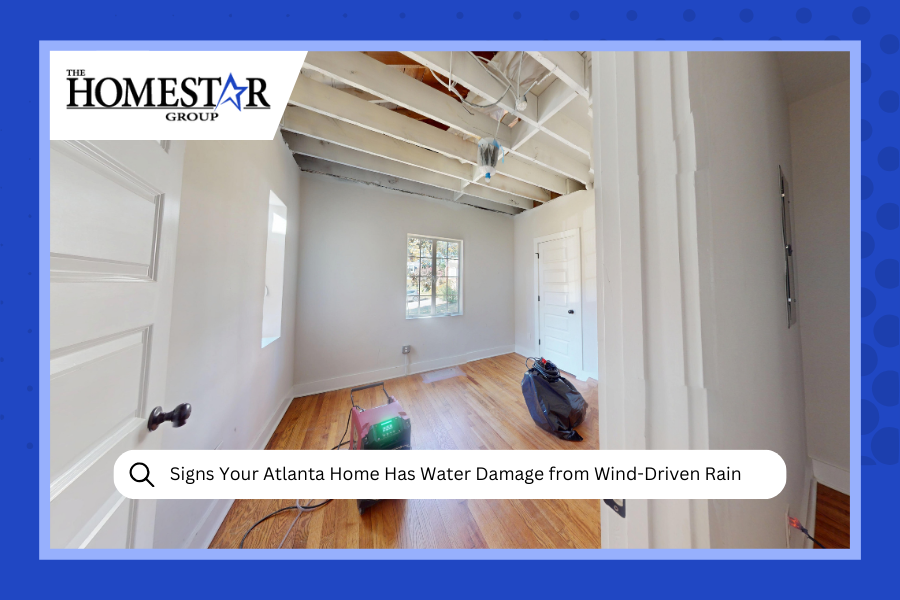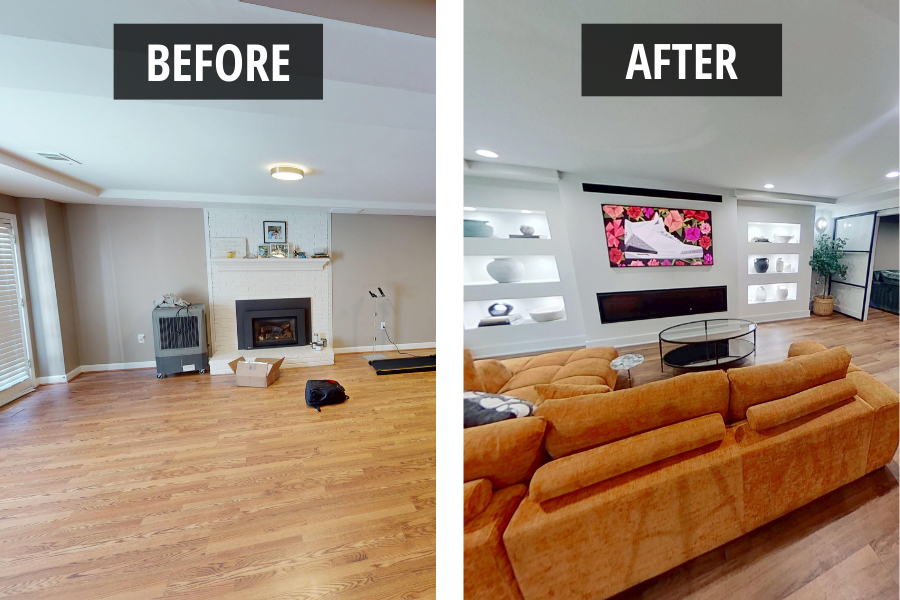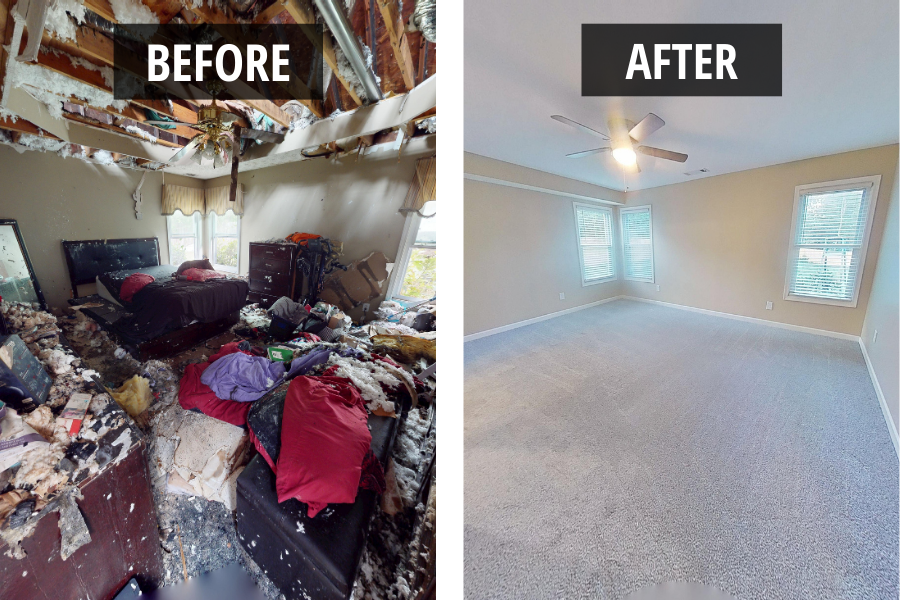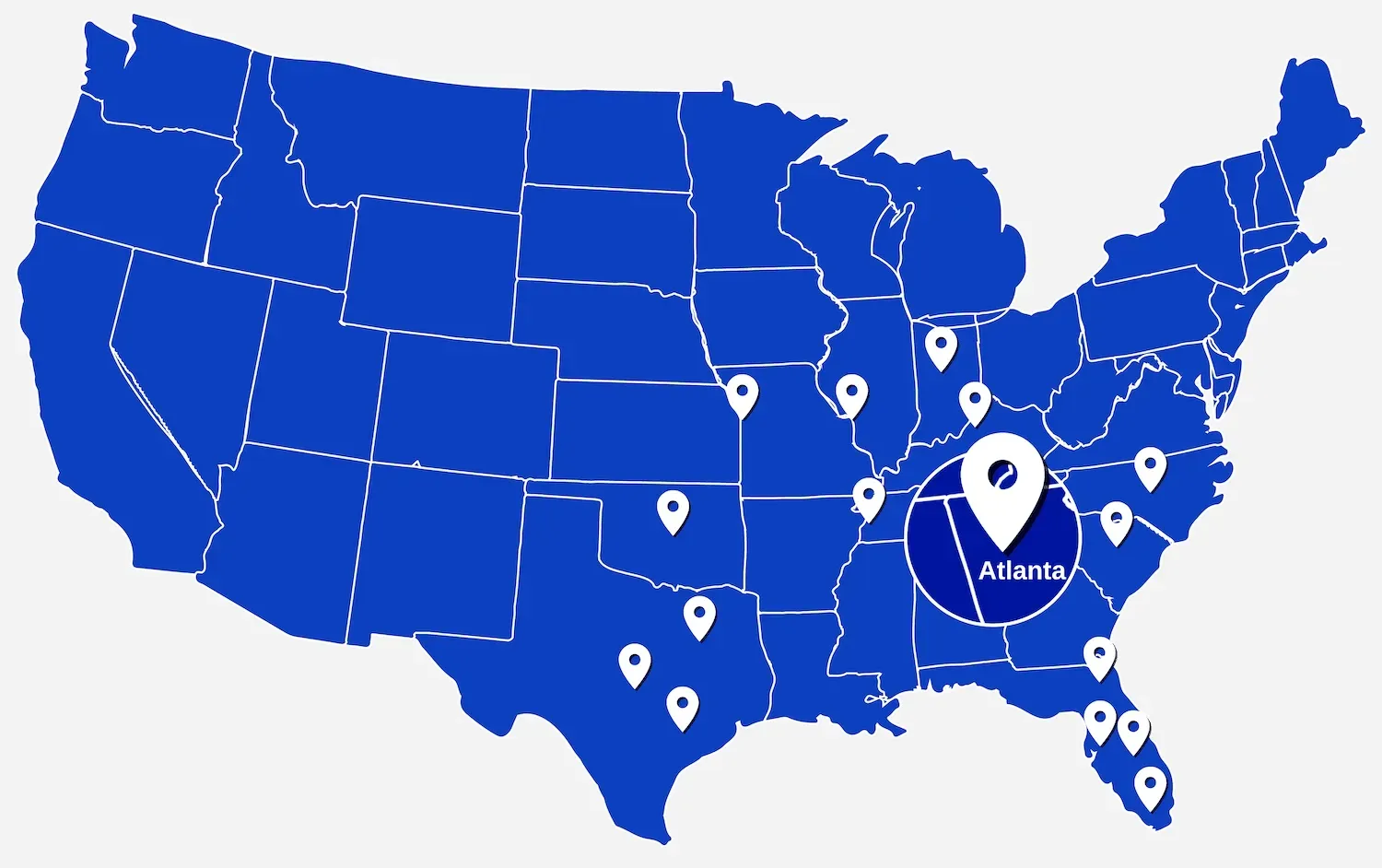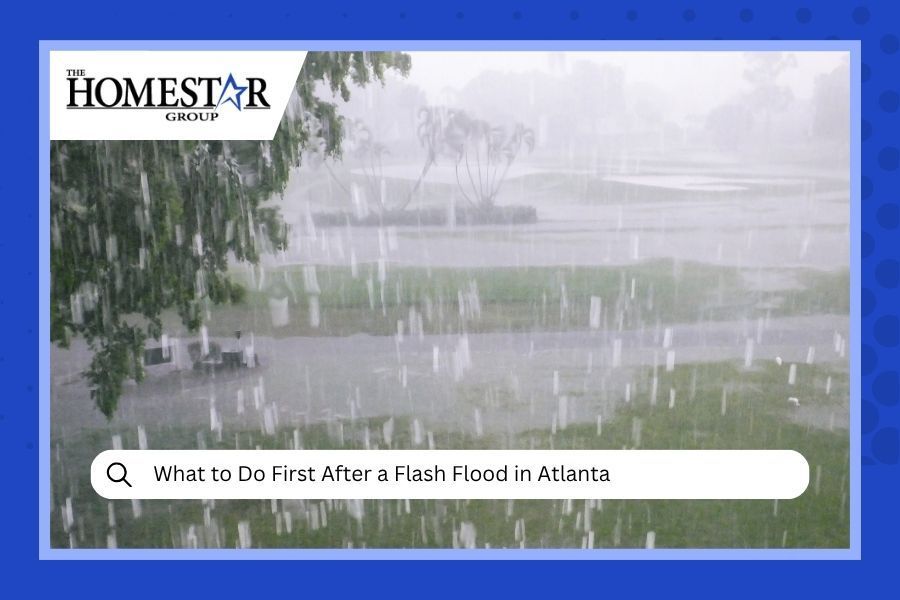
What to Do First After a Flash Flood in Atlanta
Flash floods in Atlanta can feel like they come out of nowhere, and honestly, they kind of do. One minute you're enjoying a typical Georgia afternoon, and the next minute you're watching water creep up your driveway faster than you can say "Peachtree Street." If you're reading this because floodwater just invaded your home, take a deep breath. We've been helping Atlanta families through these exact situations for over 15 years, and we're here to walk you through what needs to happen next.
The most important thing right now? Your safety comes first, always. But once you and your family are secure, there are some crucial steps that can make the difference between a manageable restoration and a complete nightmare. Let's break down exactly what you need to do in those critical first hours after water damage hits your Atlanta home.
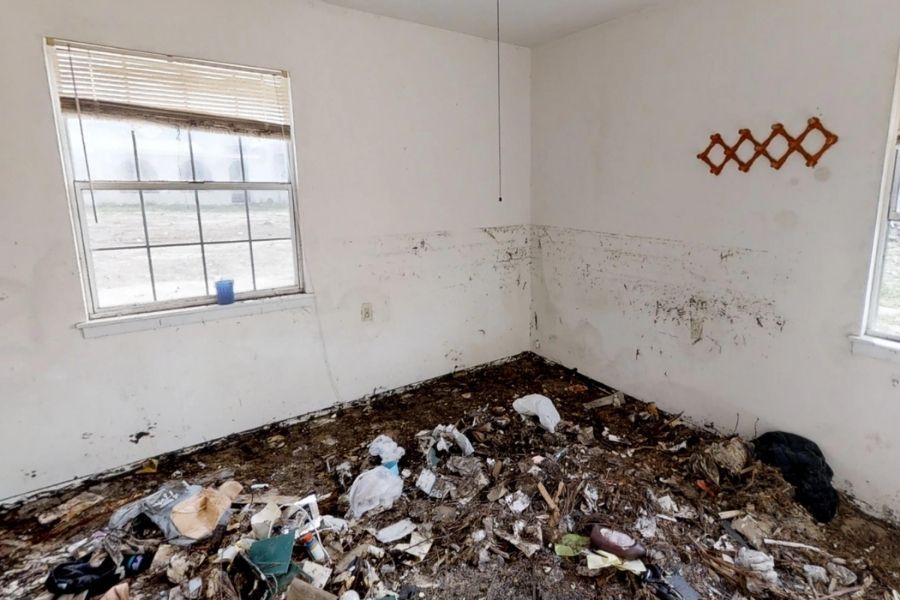
Flash flooding can cause extensive damage to Atlanta homes in just a few hours
Your Safety Checklist: Before You Do Anything Else
Before you even think about assessing damage or calling insurance, let's make sure everyone stays safe. Floodwater isn't just dirty water, it's potentially dangerous water that can carry all sorts of nasty stuff you don't want to mess with.
Electrical Safety First
- Turn off electricity at the main breaker if you can do so safely
- Never walk through standing water if electrical outlets or appliances might be submerged
- If you can't safely reach your electrical panel, call Georgia Power immediately
- Assume any standing water is electrically charged until proven otherwise
Structural Assessment
- Look for obvious signs of structural damage like cracks in walls or foundation
- Check if floors feel spongy or unstable
- Listen for unusual creaking or settling sounds
- If anything seems off structurally, evacuate and call professionals
Health and Contamination Concerns
- Avoid direct contact with floodwater when possible
- Wear protective gear if you have it (boots, gloves, masks)
- Keep children and pets away from affected areas
- Remember that floodwater can contain sewage, chemicals, and debris
Document Everything: Your Insurance Lifeline
Here's where things get real about protecting your financial future. Insurance companies need proof, and lots of it. The more documentation you have, the smoother your claim process will be.
Photo and Video Documentation
Take pictures and videos of everything:
- Water levels on walls (those little tide marks tell a story)
- Damaged furniture, appliances, and belongings
- Structural damage to walls, floors, and ceilings
- Your home's exterior showing flood impact
- Any debris or contamination
Make Detailed Lists
Create an inventory of damaged items including:
- Description of each item
- Estimated age and purchase price
- Photos showing the damage
- Receipts if you have them (or best estimates if you don't)
Pro tip from our team: Use your phone's timestamp feature and take wide shots that show the extent of damage, then close-ups of specific items. Insurance adjusters love thorough documentation, and it makes our job easier when we're working on your mold remediation or complete restoration project.
Need Emergency Water Damage Help Right Now?
Don't wait for the damage to get worse. Our IICRC-certified team is standing by 24/7 to help Atlanta homeowners recover from flash flooding quickly and safely.
Get Emergency Help NowCall (678) 928-5377 - Available 24/7
Stop the Water Source (If You Can Do It Safely)
This might seem obvious, but you'd be surprised how many people forget this step in the chaos. If the flooding is from a burst pipe, broken appliance, or other controllable source inside your home, shutting it off can prevent thousands of dollars in additional damage.
Quick Water Shutoff Guide
- Main water valve: Usually located near where the water line enters your house
- Individual fixtures: Most sinks, toilets, and appliances have their own shutoff valves
- Hot water heater: Turn off both water supply and power/gas
- Washing machine and dishwasher: Check the connections behind these appliances
If you're not comfortable doing this yourself, that's totally fine. Call a plumber, or give us a call at (678) 928-5377. We're available 24/7 for exactly these kinds of emergencies, and we can walk you through it over the phone or send someone out immediately. For more information about our emergency services , check out our complete service offerings.
Remove Standing Water Quickly
Time is not your friend when it comes to standing water. Every hour that water sits in your home, it's soaking deeper into materials, creating perfect conditions for mold growth, and causing more structural damage.
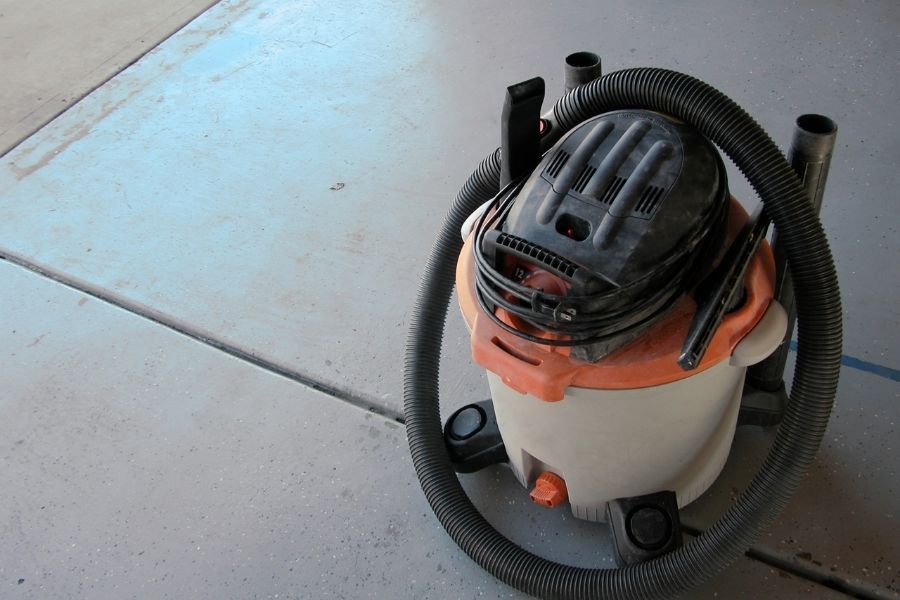
Professional-grade wet vacuums can remove large volumes of standing water quickly
DIY Water Removal (For Minor Flooding)
- Use a wet/dry vacuum if you have one
- Mop and towels for smaller areas
- Squeegees to push water toward drains
- Buckets for manual removal
When to Call the Professionals
If you're dealing with more than an inch or two of standing water, or if the water is contaminated (like from sewage backup), it's time to call in the big guns. We have industrial-grade pumps and extraction equipment that can remove thousands of gallons quickly and safely.
Reality check: We've seen too many homeowners try to tackle major flooding with a Shop-Vac and end up with mold problems weeks later. Sometimes the DIY approach costs more in the long run than just calling professionals from the start.
Contact Your Insurance Company ASAP
Most insurance policies require you to report claims within a certain timeframe, and the sooner you call, the sooner you can get the process started. According to the Insurance Information Institute , it's crucial to understand what your policy covers before disaster strikes. Have your policy number handy and be prepared to provide:
- Date and time the damage occurred
- Cause of the flooding (if known)
- Extent of the damage (your photos will be helpful here)
- Any immediate steps you've already taken
Working with Insurance Adjusters
When the adjuster comes out, having a restoration professional present can be incredibly valuable. We speak their language and can point out damage that might not be obvious to untrained eyes. Plus, we can provide accurate estimates for repairs that help ensure you get a fair settlement.
Protect Your Belongings
While you're waiting for professional help or dealing with insurance, there are steps you can take to minimize damage to your personal belongings.
Salvageable vs. Unsalvageable Items
Generally Salvageable:
- Solid wood furniture (if dried properly)
- Metal items that can be cleaned and dried
- Some electronics (if professionally cleaned immediately)
- Important documents (can often be freeze-dried)
Usually Not Worth Saving:
- Particle board furniture
- Mattresses and box springs
- Carpeting and padding (especially if contaminated)
- Paper goods and books
- Food items
Quick Preservation Tips
- Move salvageable items to a dry area
- Separate wet items so they're not touching
- Remove cushions from furniture to aid drying
- Point fans toward wet items if you have power
When to Call The Homestar Group
Look, we're not going to sugarcoat this: water damage restoration isn't a weekend DIY project. It requires specialized equipment, expertise, and frankly, a strong stomach for some pretty gross situations. Here's when you should definitely give us a call:
- Contaminated water: If there's any chance the water contains sewage, chemicals, or other hazardous materials
- Large volume: More than a few inches of standing water throughout your home
- Structural concerns: Any signs that the flood may have compromised your home's structure
- Mold risk: If the water has been sitting for more than 24-48 hours
- Insurance claims: We can work directly with your insurance company to streamline the process
Our IICRC-certified technicians have the training and equipment to handle everything from water extraction to complete reconstruction. We've been serving the Atlanta area for over 15 years, and we've pretty much seen it all when it comes to flood damage.
The Hidden Dangers: What You Can't See Can Hurt You
Here's something most people don't realize: the damage you can see is often just the tip of the iceberg. Water has a sneaky way of getting into places you'd never think to look, and that's where the real problems start.
Behind the Scenes Damage
- Inside wall cavities: Water can travel horizontally through walls
- Under flooring: Subfloors can retain moisture for weeks
- HVAC systems: Ductwork can spread contamination throughout your home
- Insulation: Wet insulation is basically useless and needs replacement
The Mold Timeline
- 24-48 hours: Mold spores begin to germinate
- 72 hours: Visible mold growth can start appearing
- 1 week: Significant mold colonies can establish
- 2+ weeks: Major structural and health impacts possible
This is why professional moisture detection and drying is so important. We use thermal imaging cameras and moisture meters to find hidden water that could cause problems down the road.
Your Action Plan: The First 24 Hours
Here's your step-by-step checklist for those crucial first 24 hours after a flash flood hits your Atlanta home:
| Timeframe | Action Steps |
|---|---|
| Immediate (First 2 Hours) | 1. Ensure everyone's safety 2. Turn off electricity if safe to do so 3. Document everything with photos/video 4. Stop the water source if possible 5. Call your insurance company |
| Next 6 Hours | 6. Begin water removal (if safe and manageable) 7. Contact professional restoration services 8. Start moving salvageable items to dry areas 9. Set up fans and dehumidifiers if available 10. Notify neighbors if their property might be affected |
| Within 24 Hours | 11. Meet with insurance adjuster 12. Get professional moisture assessment 13. Begin professional water extraction and drying 14. Start the claims process with detailed documentation 15. Plan temporary living arrangements if needed |
Need help with any of these steps? Don't hesitate to contact us at (678) 928-5377. We're here 24/7 because we know disasters don't wait for business hours. You can also learn more about common types of flood damage and get additional preparation tips from our experience serving the metro area.
Working with Restoration Professionals: What to Expect
When you call a professional restoration company (hopefully us!), here's what the process typically looks like:
Initial Assessment
- Moisture mapping: We use specialized equipment to find all the water, even the hidden stuff
- Category classification: We determine if the water is clean, gray, or black water
- Damage assessment: Structural and content evaluation
- Restoration plan: Detailed scope of work and timeline
The Restoration Process
- Water extraction: Industrial pumps and vacuums remove standing water
- Structural drying: Commercial dehumidifiers and air movers dry building materials
- Cleaning and sanitizing: Everything gets properly cleaned and disinfected
- Restoration: Repairs and reconstruction to bring your home back to pre-loss condition
Timeline Expectations
- Water extraction: Usually 1-3 days depending on volume
- Structural drying: Typically 3-7 days with professional equipment
- Cleaning and restoration: Varies widely based on extent of damage
- Total project: Can range from a week to several months for extensive damage
Prevention: Preparing for Next Time
Atlanta's weather patterns mean flash flooding is always a possibility. Here are some steps you can take to minimize damage if it happens again:
Home Preparedness
- Know where your main water shutoff is located
- Keep a emergency kit with flashlights, tools, and contact numbers
- Consider installing a sump pump if you have a basement
- Regular maintenance on gutters and drainage systems
- Review your insurance coverage annually
Early Warning Systems
- Sign up for local flood alerts and weather notifications
- Monitor weather patterns during Georgia's storm season
- Keep emergency contact numbers easily accessible
- Have an evacuation plan if you live in a flood-prone area
The National Weather Service provides excellent flood monitoring for the Atlanta area. For more detailed preparation tips and seasonal maintenance advice, check out our other resources on water damage prevention and common causes of water damage.
Frequently Asked Questions
What should I do if I smell a musty odor after Atlanta flash flood cleanup?
A musty smell after flood cleanup often indicates hidden moisture or early mold growth that wasn't properly addressed during the initial drying process. This is especially common in Atlanta's humid climate where moisture can linger in wall cavities, under flooring, or in HVAC systems. Don't ignore this warning sign. Contact our IICRC-certified team immediately for a professional moisture assessment using thermal imaging and moisture meters. We can locate hidden water sources and implement targeted drying strategies before mold becomes a major health and structural issue.
How do I know if my Atlanta home's electrical system is safe after flood water recedes?
Never assume your electrical system is safe after flood exposure, even if the water level didn't reach outlets or panels. Water can travel through walls and conduits, creating hidden hazards. Signs of electrical damage include flickering lights, burning smells, warm outlets or switches, or circuit breakers that keep tripping. Before turning power back on, have a licensed electrician inspect your entire system. If you had significant flooding, Georgia Power may also need to inspect your meter and service connections before restoring power safely.
Can I use my HVAC system immediately after flash flooding in my Atlanta home?
Absolutely not. Your HVAC system needs professional inspection before operation after any flood event. Even if the unit itself wasn't submerged, moisture can enter ductwork and spread contamination throughout your entire home. Additionally, wet insulation around ducts becomes ineffective and can harbor mold growth. Our team works with certified HVAC professionals to inspect, clean, and sanitize your entire system. This includes checking ductwork, replacing contaminated insulation, and ensuring your system won't spread contaminants when you turn it back on.
What's the difference between clean water, gray water, and black water flooding in Atlanta homes?
Understanding water categories is crucial for safe cleanup and restoration. Clean water comes from sources like burst supply lines or rainwater (before it contacts contaminated surfaces). Gray water contains some contamination from sources like dishwashers, washing machines, or clean toilet overflow. Black water is highly contaminated and dangerous, coming from sewage backups, storm flooding that's mixed with ground contaminants, or water that's been sitting stagnant for over 48 hours. Atlanta's flash floods often start as gray water but quickly become black water as they pick up street contaminants, chemicals, and debris. Black water requires professional handling with full protective equipment and specialized cleaning procedures.
Remember: Flash floods in Atlanta are serious business, but they don't have to be devastating if you know what to do. The key is acting quickly, staying safe, and getting professional help when you need it. Our team at The Homestar Group has been helping Atlanta families recover from water damage for over 15 years, and we're here whenever you need us. Stay safe out there, and don't hesitate to call (678) 928-5377 if disaster strikes.

Jeremy York is the owner of The Homestar Group, bringing over 15 years of experience in the water and fire damage restoration industry to homeowners and businesses throughout the Atlanta metro area. Under his leadership, The Homestar Group has built a reputation for reliable 24/7 emergency response and professional restoration services backed by IICRC certification. Jeremy is committed to serving the local community and takes pride in helping families and business owners recover from unexpected disasters. His hands-on approach ensures every customer receives the care and attention they deserve during challenging times.

